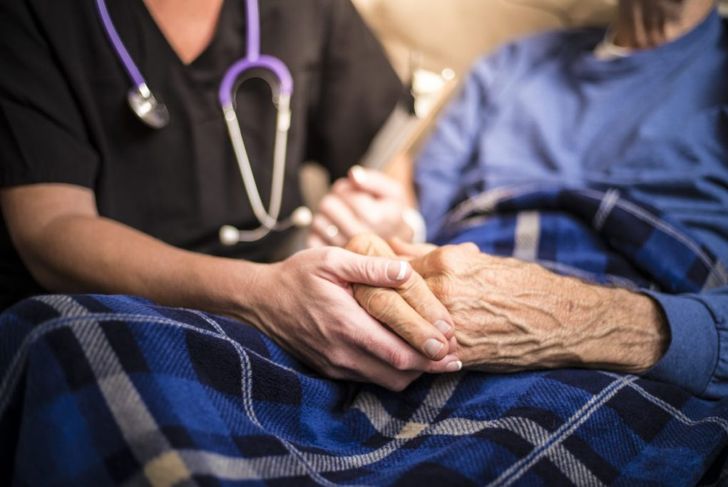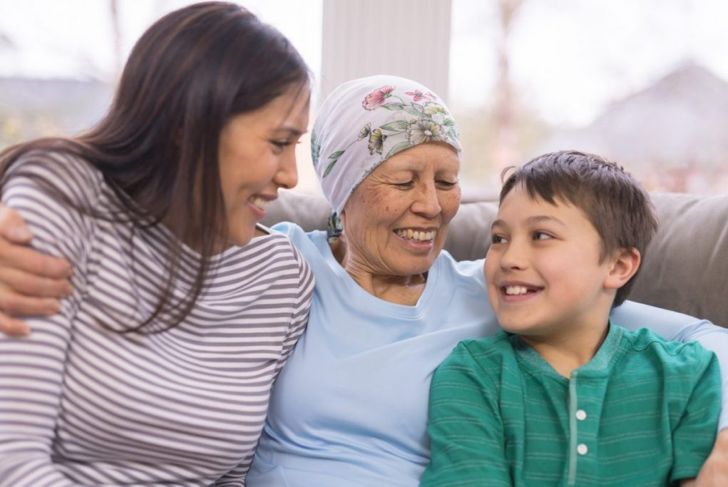Weight loss is a common symptom of cancer and a side effect of cancer treatment. Experts say most people diagnosed with cancer will experience some form of weight reduction during the course of the disease. The definition of weight loss is a reduction in body mass because of a decrease in body fat, fluid, muscle, and other connective tissues. Weight loss is difficult to cope with, but fortunately, there are medical, nutritional, and natural health strategies available to help manage it. There are complex reasons why weight loss occurs in people with cancer. The research aims to understand these factors, to further optimize treatment.
Types of Cancer-Related Weight Loss
Cancer-related weight loss ranges from mild to severe. Most people recently diagnosed with cancer see initial mild weight loss. Further loss of weight throughout the treatment process is normal. For those who recover and go into remission, weight eventually returns to normal. However, if weight loss continues, it can progress to cachexia or wasting syndrome, a severe form of weight loss.
Weight Loss as a Symptom of Cancer
Various cancers, ranging from blood cancer to tumors, can cause weight loss. There are several reasons for this:
- The type of cancer and its location may cause pain or nausea which decreases the appetite.
- Chemicals released by tumors or the immune system can cause nausea, suppression of appetite, or a slowing down of digestion.
- Some cancers can cause malabsorption of food and nutrients in the digestive system.
Weight Loss as a Side Effect of Treatment
Cancer treatments are often responsible for the weight loss that occurs during the illness. These treatments involve the use of medications, radiation, and surgery, all of which can cause symptoms such as nausea, vomiting, pain, and changes in digestion. In turn, these symptoms effect the person’s ability to eat and metabolize food.
Physical Impact of Weight Loss
The physical impact of weight loss is that an individual may feel less energetic and more tired. With decreased energy, activities of daily living become difficult, and people may need more assistance with personal care. Also, studies suggest a loss of five percent or more of body weight can reduce the effectiveness of treatment and negatively impacts quality of life.
Psychosocial Impact of Weight Loss
Weight loss can affect the mood and coping abilities of people with cancer as well as those who support them. A study published in 2015 by the Journal of Cachexia, Sarcopenia, and Muscle, suggests people with cancer and their family members feel a range of emotions such as sadness, fear, and anger because of their lack of control over the illness and symptoms.
Medical Management of Cancer-Related Weight Loss
Several medications and treatments can help manage cancer-related weight loss. Doctors prescribe the medications to decrease nausea, stimulate the appetite, or promote the quicker absorption of nutrients. These medications include steroids, hormones, and digestive stimulants. Statistics show people with a better overall prognosis for their particular cancer respond better to these medications.
Nutritional Management
Doctors may recommend nutritional management strategies for people with cancer-related weight loss. Many experts recommend eating smaller, more frequent meals containing favorite foods. Supplementing with good-tasting nutritional shakes high in protein, fats, and nutrients can be helpful. A nutritionist can help create meal plans tailored to one’s unique needs and preferences.
Natural Supplement Strategies
Natural supplements can effectively manage cancer-related weight loss for some people. Supplements such as ginger, gingko biloba, Withania, and omega-3 can decrease nausea or help with the side effects of treatment that cause weight loss. Also, many studies show cannabis and cannabinoids can stimulate appetite or reducing the vomiting associated with cancer treatment. It’s important to note that some supplements are contraindicated with certain cancer medications so patients should always speak to their doctor before taking natural treatments.
Other Strategies for Cancer-Related Weight Loss
Many individual and group supports are available to help people with cancer cope with the disease symptoms, including weight loss. Doctors and social workers can help clients find these supports. Mild physical activity such as walks, stair climbing, or lifting weights can help increase the mood and stimulate the appetite. Activities such as meditation, yoga, tai chi, and binaural (sound) therapy may effectively treat all symptoms of cancer, including weight loss. These activities not only enhance the appetite by calming the body but also improve overall wellness.
Managing Expectations in Cancer-Related Weight Loss
People with cancer will likely experience weight loss at some point during their illness. Therefore, it’s important to manage expectations. A study on cancer-related weight loss published by the Journal of the Advanced Practitioner in Oncology in 2015 shows unrealistic expectations about weight loss led to negative outcomes for coping and well-being. This includes expectations by both the person with cancer and their families or caregivers. Therefore, although strategies for cancer-related weight loss can be effective, it also helps to accept weight loss as a part of the cancer journey.

 Home
Home Health
Health Diet & Nutrition
Diet & Nutrition Living Well
Living Well More
More




















